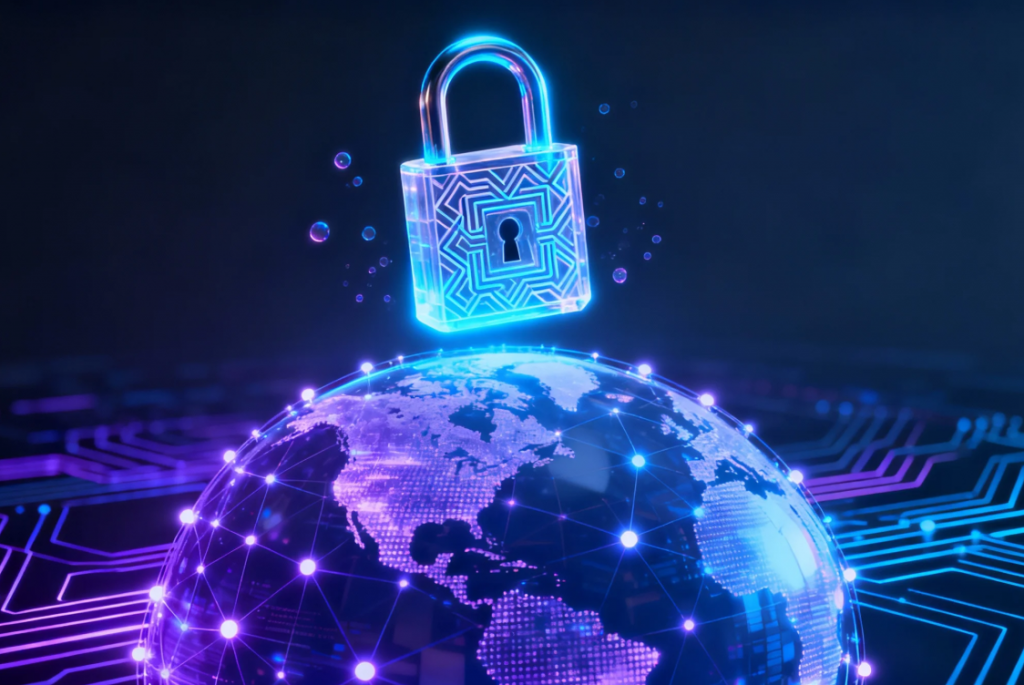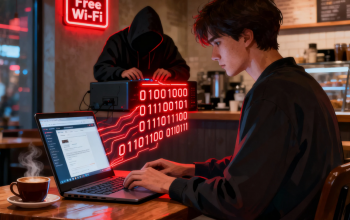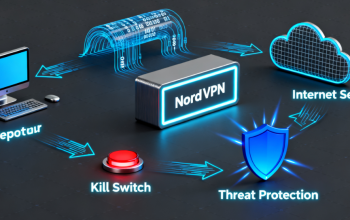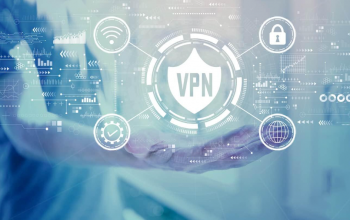The iPhone is one of the most secure smartphones available, but it is not immune to online threats. Whether you are browsing on public Wi-Fi, streaming international content, or simply looking to protect your digital privacy, a VPN (Virtual Private Network) is one of the most effective tools you can use. Among the many VPN services available, ExpressVPN stands out as one of the most reliable, secure, and user-friendly options for iOS users.
This guide provides a comprehensive tutorial on ExpressVPN iPhone install. Instead of offering just a basic installation walkthrough, we’ll cover every detail you need to know: from understanding how VPNs work on iOS, to optimizing your ExpressVPN settings, to troubleshooting common problems. By the end of this article, you’ll not only be able to install ExpressVPN on your iPhone but also configure it for maximum security and performance.
With more than 2600 words, this article aims to give you everything you need: step-by-step guidance, expert tips, comparisons with competitors, real-life use cases, and a clear understanding of why ExpressVPN is often regarded as the best VPN for iPhone.
Understanding VPNs on iOS
Before diving into installation, it helps to understand how VPNs function on Apple’s iOS ecosystem. iPhones use a secure framework that allows apps to install VPN configurations directly into the system. This means that once you set up ExpressVPN, your entire device’s internet traffic—including Safari, apps, and background services—can be routed through an encrypted tunnel.
How VPNs Protect iPhone Users
- Encryption: A VPN encrypts your data so that even if you’re on a compromised Wi-Fi network, hackers cannot read your information.
- IP Masking: Your IP address is replaced with the VPN server’s IP, which enhances privacy and allows access to geo-blocked websites.
- Security on Public Wi-Fi: Many iPhone users connect to free Wi-Fi in cafes, airports, and hotels. VPNs shield you from man-in-the-middle attacks.
Protocols Available on iOS
ExpressVPN offers multiple VPN protocols such as Lightway (its proprietary protocol optimized for speed and security), IKEv2/IPSec, and OpenVPN. On iOS, Lightway is often the best choice because of its low battery consumption and stability.
Why ExpressVPN Works Well with iOS
Unlike some Android devices that allow deep customization but can introduce vulnerabilities, Apple restricts third-party interference at the system level. This ensures that VPN apps like ExpressVPN integrate smoothly and securely with iOS, offering a balance between usability and safety.
In short, installing ExpressVPN on an iPhone is not just about convenience—it’s about leveraging the iOS security framework for maximum privacy.

Preparing for Installation
Before installing ExpressVPN, make sure you meet the basic requirements:
- Subscription: You’ll need an active ExpressVPN account. You can subscribe via their official website, choosing from monthly, 6-month, or annual plans. Longer subscriptions usually offer the best value.
- iOS compatibility: Ensure your iPhone is running iOS 12 or newer. ExpressVPN updates regularly, and staying on the latest iOS version ensures compatibility.
- Stable internet connection: Downloading the app and verifying your account requires either a stable Wi-Fi or cellular connection.
- Apple ID access: You’ll need your Apple ID to download the app from the App Store.
Tip: If you want to test before committing, ExpressVPN offers a 30-day money-back guarantee. You can install it on your iPhone and decide if it’s the right fit without risk.
Step-by-Step Installation Guide
Now let’s walk through the ExpressVPN iPhone install process in detail.
Step 1: Download ExpressVPN from the App Store
- Open the App Store on your iPhone.
- Type ExpressVPN into the search bar.
- Tap “Get” to download and install the app.
Step 2: Log into Your Account
- Open the ExpressVPN app once it’s installed.
- Enter your registered email address and password.
- If prompted, enter your activation code (usually sent to your email or available on the ExpressVPN dashboard).
Step 3: Allow VPN Configuration
- When prompted, iOS will ask you to allow ExpressVPN to add VPN configurations.
- Tap Allow and confirm with Face ID, Touch ID, or your device passcode.
- This step is critical, as it enables the app to manage your VPN connections.
Step 4: Connect to a VPN Server
- Once logged in, you’ll see a large power button icon.
- Tap it to connect to the Smart Location server (ExpressVPN automatically selects the fastest available server for you).
- Alternatively, you can choose a server manually from the list of locations.
Step 5: Verify Your Connection
- After connecting, open Safari or another browser.
- Visit a website such as
whatismyip.comto confirm your IP address has changed. - You are now browsing securely with ExpressVPN.
SEO note: Many users search for “how to use ExpressVPN on iPhone after install.” This verification step is exactly how you confirm your setup was successful.
Configuring ExpressVPN on iPhone
Installation is just the beginning. ExpressVPN provides a range of configuration options that help you fine-tune your experience.
Choosing Server Locations
ExpressVPN has servers in over 90 countries. For best performance:
- Connect to servers geographically close to your location for speed.
- Connect to servers in specific countries to access geo-restricted content (e.g., US for Netflix, UK for BBC iPlayer).
Switching Protocols
If you experience slow speeds, switch protocols:
- Open the ExpressVPN app → Settings → VPN Protocol.
- Try Lightway first for speed and reliability.
- Use IKEv2 or OpenVPN if Lightway is unavailable.
Enabling Auto-Connect
- In the settings, enable Auto-Connect to ensure ExpressVPN activates whenever you join untrusted Wi-Fi networks.
Siri Shortcuts
- ExpressVPN allows integration with Siri Shortcuts.
- You can create a shortcut like “Hey Siri, connect ExpressVPN” for one-tap control.
Optimizing Your Experience
Beyond the basics, here are ways to get the most out of your ExpressVPN app:
- Split Tunneling: Although limited on iOS, ExpressVPN supports selective routing. You can configure which apps should bypass the VPN tunnel.
- Streaming Optimization: Connect to servers optimized for streaming services. ExpressVPN maintains servers that unblock Netflix, Hulu, and Disney+.
- Traveling Abroad: If you’re in a country with internet censorship, try connecting through obfuscated servers (stealth servers) that mask VPN traffic.
- Battery Management: Use the Lightway protocol to minimize battery consumption.
- Network Lock (Kill Switch): On iPhone, ExpressVPN ensures that if the VPN drops, your connection pauses until the VPN reconnects.
Troubleshooting Common Issues
Even the best apps encounter problems. Here’s how to fix the most common ones:
- Problem: Cannot Connect to VPN
Solution: Switch servers, change protocol, or restart your app. - Problem: Slow Speeds
Solution: Connect to a closer server, enable Lightway protocol, or switch from Wi-Fi to cellular data. - Problem: App Download Fails
Solution: Check that your Apple ID region matches your location. If using a foreign App Store account, temporarily switch to your home region. - Problem: VPN Disconnects Randomly
Solution: Enable “Auto-Connect” and ensure Low Power Mode is disabled, as it sometimes interferes with background processes. - Problem: Streaming Still Blocked
Solution: Clear your browser cache and reconnect to a different server optimized for streaming.
ExpressVPN vs. Other iPhone VPN Apps
How does ExpressVPN stack up against its competitors?
- ExpressVPN vs. NordVPN: Both are excellent, but ExpressVPN’s Lightway protocol often gives it a speed edge on iPhones.
- ExpressVPN vs. Surfshark: Surfshark is more affordable, but ExpressVPN offers more stability and better iOS integration.
- ExpressVPN vs. ProtonVPN: ProtonVPN has a strong privacy reputation, but its free plan is limited in speed. ExpressVPN is more consistent for streaming and daily use.
- ExpressVPN vs. Free VPNs: Free VPNs often log your data, show ads, and have bandwidth restrictions. ExpressVPN charges for premium service, but in exchange you get no-logs privacy and fast, unlimited usage.
Security and Privacy Considerations
When you install ExpressVPN on your iPhone, you’re not just improving performance—you’re enhancing security.
- No-logs policy: ExpressVPN does not keep logs of your browsing history or connection metadata.
- AES-256 encryption: The same encryption standard used by governments and banks worldwide.
- TrustedServer technology: All servers run on RAM-only architecture, meaning no data is ever written to a hard drive.
- DNS Leak Protection: Ensures your browsing activity is not exposed through DNS requests.
- Independent Audits: ExpressVPN has undergone third-party audits to verify its no-logs claims.
Real-Life Use Cases for iPhone Users
Here are scenarios where ExpressVPN proves invaluable:
- Public Wi-Fi Security: Prevent hackers from intercepting your data at coffee shops, airports, or hotels.
- Traveling Internationally: Access your home country’s streaming services while abroad.
- Online Banking: Protect sensitive transactions on untrusted networks.
- Avoiding Throttling: Stop ISPs from slowing down your video streaming or gaming.
- Remote Work: Connect securely to company networks without risking corporate data.
Frequently Asked Questions (FAQ)
Q1: Will ExpressVPN drain my iPhone’s battery?
A: ExpressVPN is designed to be efficient, especially with the Lightway protocol. While all VPNs consume some battery, ExpressVPN minimizes the impact.
Q2: Can I use ExpressVPN on multiple devices?
A: Yes, one subscription allows simultaneous use on up to 8 devices, including iPhone, iPad, Mac, and even smart TVs.
Q3: Does ExpressVPN work in China or the Middle East?
A: ExpressVPN maintains obfuscated servers that help bypass censorship in restricted regions.
Q4: How do I cancel or get a refund?
A: ExpressVPN offers a 30-day money-back guarantee. Cancel within this period to receive a full refund.
Q5: Can ExpressVPN improve gaming performance on iPhone?
A: In some cases, yes. It can reduce ping by connecting you to faster servers, but results vary depending on your ISP.
Q6: Is ExpressVPN worth the cost compared to cheaper VPNs?
A: Yes, if you prioritize speed, reliability, and privacy. Unlike many cheaper VPNs, ExpressVPN has a proven track record and global infrastructure.
Installing and configuring ExpressVPN on your iPhone is a simple yet powerful way to enhance your online privacy, security, and browsing freedom. From quick installation via the App Store to advanced configurations like protocol switching and Siri shortcuts, ExpressVPN offers iPhone users both convenience and control.
With strong encryption, a strict no-logs policy, and global server coverage, ExpressVPN is one of the best VPN solutions available today. Whether you’re streaming, traveling, gaming, or simply securing your data on public Wi-Fi, this VPN delivers a reliable and secure experience.
Ready to get started? Visit the ExpressVPN official website to download the app and enjoy a safer, faster, and more private internet experience on your iPhone.

🆚 ExpressVPN vs. Other Popular iPhone VPNs
When choosing a VPN for your iPhone, ExpressVPN is one of the most popular options — but it’s not the only one. To give you a more balanced perspective, here’s a quick comparison with other leading VPN services:
| Feature | ExpressVPN | NordVPN | Surfshark |
|---|---|---|---|
| Ease of Installation | Very simple, App Store download & one-tap setup | Easy, but more configuration options | Easy, beginner-friendly |
| Protocols | Lightway, OpenVPN, IKEv2 | NordLynx (WireGuard-based), OpenVPN, IKEv2 | WireGuard, OpenVPN, IKEv2 |
| Server Coverage | 105+ countries | 60+ countries | 100+ countries |
| Speed | Very fast (optimized for streaming) | Fast, especially with NordLynx | Good, but can fluctuate |
| Simultaneous Connections | 8 devices | 6 devices | Unlimited devices |
| Best For | iPhone users who value speed and privacy | Users who want advanced features | Budget-conscious families |
📌 Takeaway: If you prioritize smooth streaming on iPhone and quick setup, ExpressVPN stands out. However, if you want unlimited connections or a lower price point, Surfshark might be attractive. NordVPN offers advanced customization.
❓ Frequently Asked Questions (FAQ)
1. Will installing a VPN on my iPhone slow down my internet?
Not necessarily. VPNs encrypt your traffic, which can cause a small drop in speed, but ExpressVPN and similar premium providers optimize their servers to minimize this impact. In many cases, you won’t notice much difference.
2. Is it legal to use ExpressVPN on an iPhone?
Yes, in most countries VPN usage is completely legal. However, a few regions (like China, Iran, or UAE) impose restrictions. Always check your local laws before using a VPN.
3. Does ExpressVPN drain my iPhone’s battery?
Running a VPN does consume extra resources, but ExpressVPN’s Lightway protocol is designed to be lightweight and battery-friendly compared to older protocols.
4. Can I use ExpressVPN on multiple Apple devices?
Yes. One subscription allows up to 8 devices simultaneously, so you can protect your iPhone, iPad, and MacBook at the same time.
5. What if I don’t want to pay for ExpressVPN right away?
ExpressVPN offers a 30-day money-back guarantee. Alternatively, you can explore other VPNs with free trials like ProtonVPN (though free versions often have speed or server limitations).
6. Do I need ExpressVPN if my iPhone already has iCloud Private Relay?
iCloud Private Relay only hides your IP in Safari and some apps, while ExpressVPN encrypts all traffic across your device, provides global server access, and unlocks geo-restricted content. They complement rather than replace each other.



